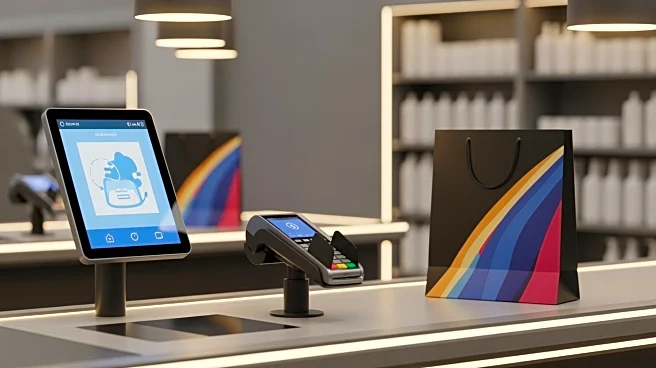What's Happening?
Retailers are increasingly adopting checkout-as-a-service (CaaS) to address the high rate of cart abandonment during the online shopping process. According to the RetailX EU1000 report, up to 50% of shoppers
abandon their purchases if the checkout process is not quick and clear. CaaS offers a unified, agile platform that replaces fragmented systems, providing faster, more secure, and personalized checkout experiences. This service is gaining traction in sectors like beauty and fashion, where features such as one-click checkout, real-time inventory, and third-party payment integration are becoming standard expectations. Retailers using CaaS have reported reduced cart abandonment, higher average order values, and increased customer loyalty.
Why It's Important?
The adoption of CaaS is crucial for retailers aiming to improve their conversion rates and customer retention. By streamlining the checkout process, retailers can minimize friction that leads to cart abandonment, which is responsible for up to 68% of lost sales. This technology not only enhances the shopping experience but also allows retailers to focus on growth and customer relationships, knowing that their checkout systems are efficient and secure. As consumer expectations for seamless online shopping experiences grow, CaaS provides a competitive edge, helping retailers to build trust and long-term relationships with their customers.
What's Next?
Retailers are likely to continue integrating CaaS into their operations to stay ahead in the competitive ecommerce landscape. As more sectors adopt this technology, the focus will be on further enhancing personalization and security features to meet evolving consumer demands. Retailers may also explore additional innovations in the checkout process, such as biometric authentication and AI-driven recommendations, to further reduce abandonment rates and improve customer satisfaction.
Beyond the Headlines
The shift towards CaaS reflects broader trends in ecommerce, where customer experience is becoming a key differentiator. This move may also influence how retailers approach other aspects of their operations, such as inventory management and customer service, to create a more cohesive and efficient shopping experience. Additionally, the success of CaaS could drive further investment in digital transformation initiatives across the retail industry.












